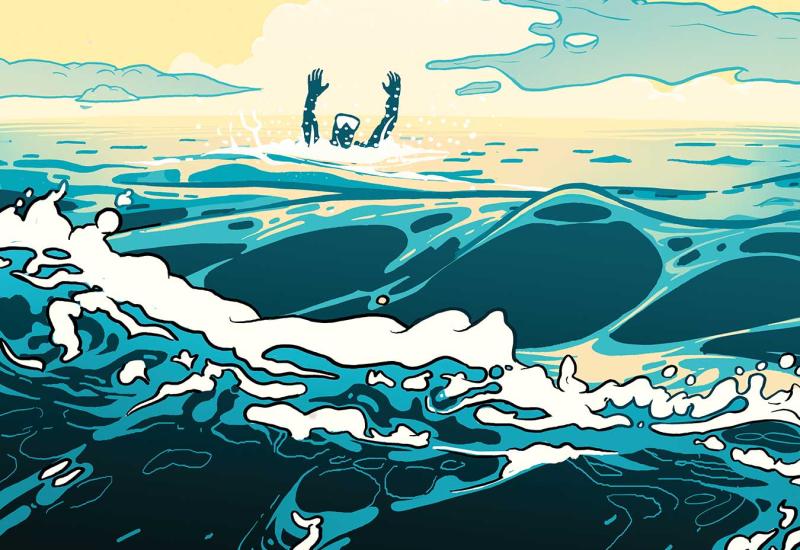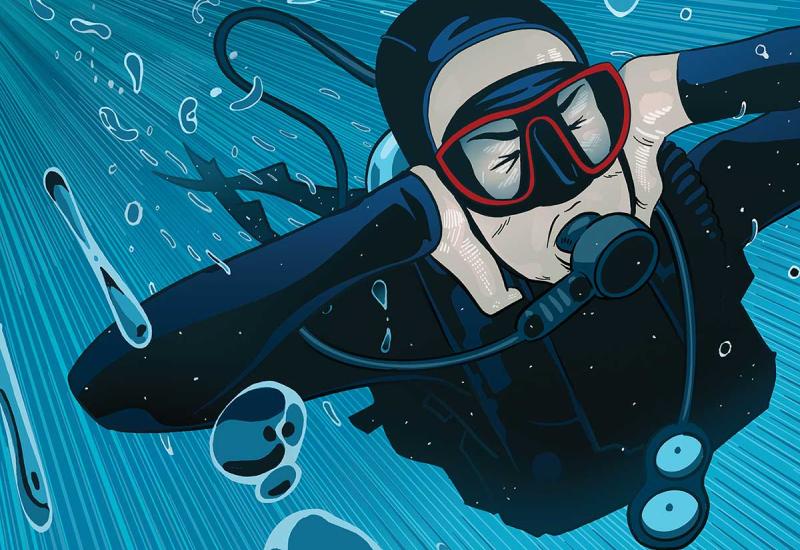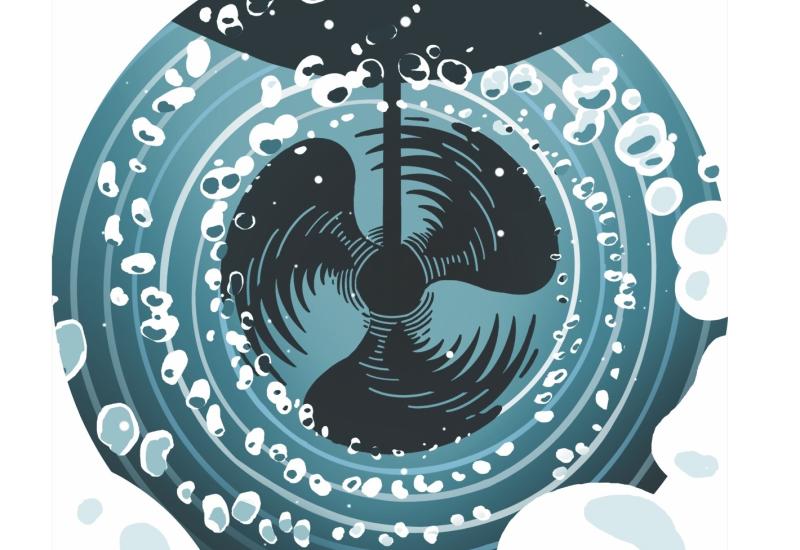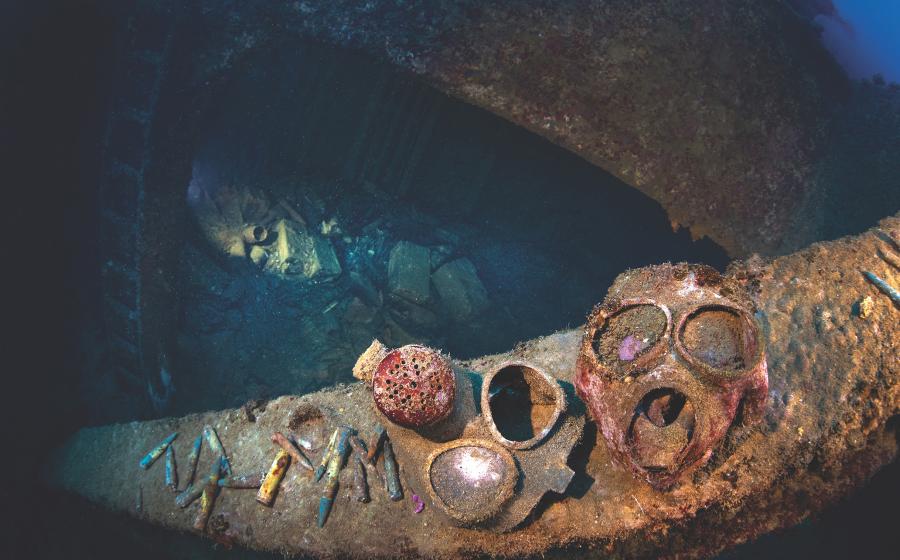Lessons for Life: Are You Too Comfortable?

Scuba Diving Safety: Lessons for Life
Solitude was the first thing Ted would say when people asked him why he liked to dive in the lake in search of local crayfish, called crawdads. He always made the dives alone and took his time searching under rocks and limbs in the water. The second thing he would tell people was that the little bugs tasted really good with butter.
The Diver
Ted liked to go diving, but he wasn’t interested in the sport for the adventure of it. He liked it for the quiet time it gave him. He liked to get away from cell phones and text messages. It wasn’t that he was anti-social — exactly the opposite. He was too busy and had too many demands on his life. His one way to escape was to go diving. Many people see diving that way, but Ted took it even further: He preferred to dive alone. That way, he didn’t have to worry about anyone else’s schedule or problems. He could simply grab his gear, drive up the mountain to the lake and make a dive. And when he was successful at finding crawdads, he loved to have friends over to eat.
The Dives
Ted made nearly the same dive every time he went to the lake. This day was no exception. He drove to the access road that ran beside the dam, assembled his gear and walked into the water. He never went more than 30 or 40 feet deep. He always stayed in the light zone, up where the water was warmer. After years of hunting crawdads, he knew the little bugs preferred the warmer water, so there was no point in going deeper. The summer had been unusually warm and dry, allowing the lake water to clear deeper and get warmer. He found himself a little deeper than normal, closer to 50 feet. He was having a good day, though, and found lots of crawdads. He’d been underwater about 20 minutes and his game bag was nearly full as he swam close to a spillway gate. That’s when he got in trouble.
The Accident
Even in the dry summer, the lake operator released water from the lake as streams higher in the mountains continued feeding it. The lake also supplied a series of streams down the mountain and provided a water source for the town Ted lived in. Even though the flow of water passing through the spillway was low, the pressure above it was enormous. The opening to the spillway was 50 feet underwater, and the water pressure above Ted exerted 21.5 pounds per square inch. When he got too close to the spillway opening, Ted was pulled against the gate like a star to a blackhole. He didn’t have the strength to pull himself free.
Analysis
For Ted, diving meant peace and quiet. He had grown so comfortable with diving that he failed to watch his surroundings and pay attention to what was going on around him. He had gotten lazy. Ted didn’t monitor his depth. He simply stayed away from the thermocline –– the distinct separation between warmer water above and colder water below. Often when the water is calm, you can see the physical line, but you can always feel it as suddenly you feel cold. He knew that as long as he stayed in the warm water he would be shallow and would stay where the crawdads were. That was what he was focused on. He forgot, though, that the lake changed from day to day as water levels raised and lowered and the temperature changed.
He also didn’t pay attention to his surroundings. When he encountered the spillway, he should have realized that something was different about this dive — he was much deeper than he was used to going. While he wasn’t in danger of running out of air at that moment, he was using his air faster than he would if he were 20 feet shallower at his normal dive depth, and he could have gotten in trouble anyway. While he did have a depth gauge and pressure gauge, he rarely looked at them. Water pressure can be deceptive. While water flowing into a spillgate or over a lowhead dam in a stream might appear to be moving slowly, it still exerts a tremendous amount of pressure. That pressure spread out over a large opening or across your body adds up to thousands of pounds of force pulling you down. Caught in that pull, there is no way to pull yourself free. Even with help, it can be difficult.
In this case, no one even realized Ted was missing until long after his air supply ran out. When they found his truck along the access road, the local public safety dive team was called in and they quickly found his body still stuck against the spill gate. Even shutting down the water flow didn’t help pull his body free. The water pressure behind his body had effectively created a vacuum, locking him in place. It took several hours of work to recover his body, because it was wedged so tightly and securely against the spill gate.
Lessons for Life
- Diving alone is only for people properly trained and equipped. Most divers should only dive with a buddy.
- If you do choose to dive alone, it is still important to let others know your dive plan and preferably have a beachmaster who knows your dive plan and can initiate a search if you don’t return at the scheduled time.
- Stay away from spillways, sluice gates or low head dams in streams. The water might seem to be moving slowly, but the amount of pressure it exerts is more than it’s possible to overcome. It’s easy to get in trouble in these situations and nearly impossible to get away from them on your own.
- Stay alert to your surroundings. Even when you have made the same dive a number of times, it’s still important to stay alert and pay attention as the environment might change without your knowledge.
- Watch your depth and air pressure. Ultimately, you have to be responsible for yourself. You have to monitor your dive profile and determine your level of acceptable risk. No one else can do that for you.
Eric Douglas is the director of Training for Divers Alert Network. He also co-authored the book Scuba Diving Safety, and has written a series of dive adventure novels and short stories as well. Check out his website at www.booksbyeric.com.
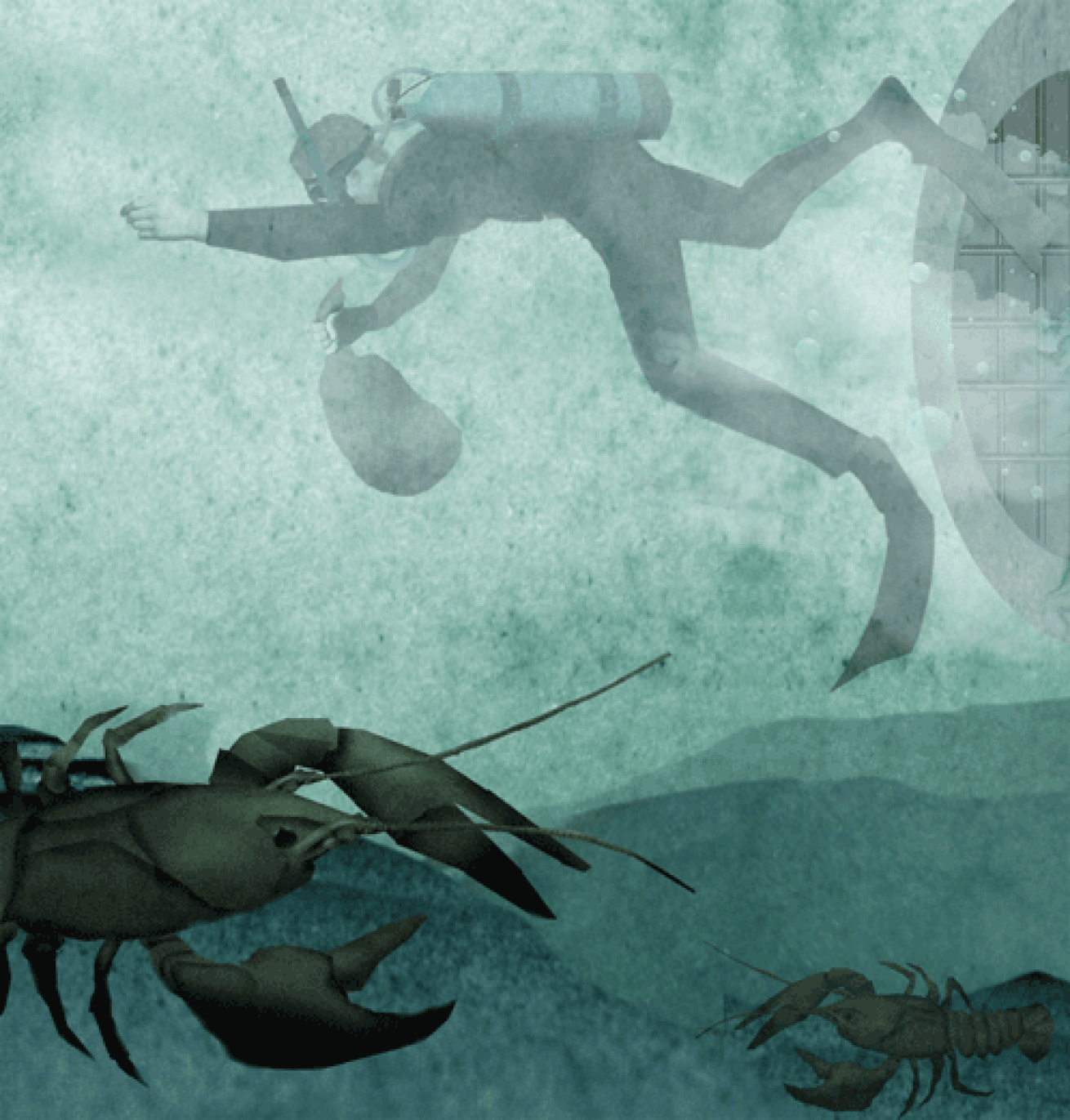
Scuba Diving Safety: Lessons for Life
Solitude was the first thing Ted would say when people asked him why he liked to dive in the lake in search of local crayfish, called crawdads. He always made the dives alone and took his time searching under rocks and limbs in the water. The second thing he would tell people was that the little bugs tasted really good with butter.
The Diver Ted liked to go diving, but he wasn’t interested in the sport for the adventure of it. He liked it for the quiet time it gave him. He liked to get away from cell phones and text messages. It wasn’t that he was anti-social — exactly the opposite. He was too busy and had too many demands on his life. His one way to escape was to go diving. Many people see diving that way, but Ted took it even further: He preferred to dive alone. That way, he didn’t have to worry about anyone else’s schedule or problems. He could simply grab his gear, drive up the mountain to the lake and make a dive. And when he was successful at finding crawdads, he loved to have friends over to eat.
The Dives
Ted made nearly the same dive every time he went to the lake. This day was no exception. He drove to the access road that ran beside the dam, assembled his gear and walked into the water. He never went more than 30 or 40 feet deep. He always stayed in the light zone, up where the water was warmer. After years of hunting crawdads, he knew the little bugs preferred the warmer water, so there was no point in going deeper. The summer had been unusually warm and dry, allowing the lake water to clear deeper and get warmer. He found himself a little deeper than normal, closer to 50 feet. He was having a good day, though, and found lots of crawdads. He’d been underwater about 20 minutes and his game bag was nearly full as he swam close to a spillway gate. That’s when he got in trouble.
The Accident
Even in the dry summer, the lake operator released water from the lake as streams higher in the mountains continued feeding it. The lake also supplied a series of streams down the mountain and provided a water source for the town Ted lived in. Even though the flow of water passing through the spillway was low, the pressure above it was enormous. The opening to the spillway was 50 feet underwater, and the water pressure above Ted exerted 21.5 pounds per square inch. When he got too close to the spillway opening, Ted was pulled against the gate like a star to a blackhole. He didn’t have the strength to pull himself free.
Analysis
For Ted, diving meant peace and quiet. He had grown so comfortable with diving that he failed to watch his surroundings and pay attention to what was going on around him. He had gotten lazy. Ted didn’t monitor his depth. He simply stayed away from the thermocline –– the distinct separation between warmer water above and colder water below. Often when the water is calm, you can see the physical line, but you can always feel it as suddenly you feel cold. He knew that as long as he stayed in the warm water he would be shallow and would stay where the crawdads were. That was what he was focused on. He forgot, though, that the lake changed from day to day as water levels raised and lowered and the temperature changed.
He also didn’t pay attention to his surroundings. When he encountered the spillway, he should have realized that something was different about this dive — he was much deeper than he was used to going. While he wasn’t in danger of running out of air at that moment, he was using his air faster than he would if he were 20 feet shallower at his normal dive depth, and he could have gotten in trouble anyway. While he did have a depth gauge and pressure gauge, he rarely looked at them. Water pressure can be deceptive. While water flowing into a spillgate or over a lowhead dam in a stream might appear to be moving slowly, it still exerts a tremendous amount of pressure. That pressure spread out over a large opening or across your body adds up to thousands of pounds of force pulling you down. Caught in that pull, there is no way to pull yourself free. Even with help, it can be difficult.
In this case, no one even realized Ted was missing until long after his air supply ran out. When they found his truck along the access road, the local public safety dive team was called in and they quickly found his body still stuck against the spill gate. Even shutting down the water flow didn’t help pull his body free. The water pressure behind his body had effectively created a vacuum, locking him in place. It took several hours of work to recover his body, because it was wedged so tightly and securely against the spill gate.
Lessons for Life
- Diving alone is only for people properly trained and equipped. Most divers should only dive with a buddy.
- If you do choose to dive alone, it is still important to let others know your dive plan and preferably have a beachmaster who knows your dive plan and can initiate a search if you don’t return at the scheduled time.
- Stay away from spillways, sluice gates or low head dams in streams. The water might seem to be moving slowly, but the amount of pressure it exerts is more than it’s possible to overcome. It’s easy to get in trouble in these situations and nearly impossible to get away from them on your own.
- Stay alert to your surroundings. Even when you have made the same dive a number of times, it’s still important to stay alert and pay attention as the environment might change without your knowledge.
- Watch your depth and air pressure. Ultimately, you have to be responsible for yourself. You have to monitor your dive profile and determine your level of acceptable risk. No one else can do that for you.
Eric Douglas is the director of Training for Divers Alert Network. He also co-authored the book Scuba Diving Safety, and has written a series of dive adventure novels and short stories as well. Check out his website at www.booksbyeric.com.


